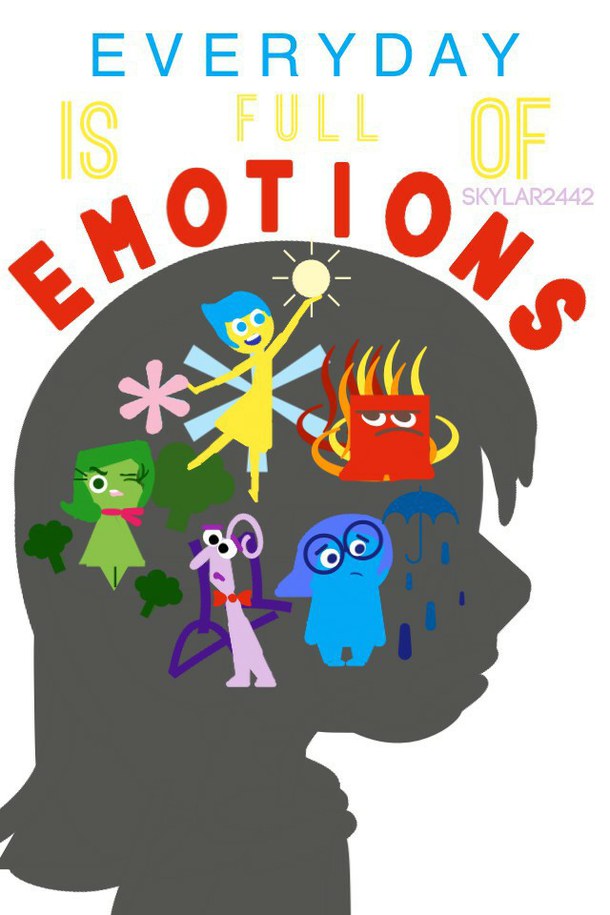
Emotions are not irrational!
– A call for Emotional Intelligence
If you have ever been labelled as irrational, if someone has ever told you that your emotions don’t make sense, then this article is made for you.
It is time to unravel that myth and shed light on what emotions really are and mean.
Emotions are an instinctual response of our body to our mood, other people, the circumstances surrounding us, and many more factors. Often, our emotions are explosive, like when we are angry, sad or jealous, and the result is confusing to the people around us, who don’t know what is going on inside of us.
While the reaction to a particular circumstance can be perceived as irrational, the underlying emotion is a signal from our brain that we can learn to identify and process appropriately.
Emotions are caused by physical and chemical processes, therefore they are cognitive phenomena, as emphasized by Tiffany Watt Smith, author of “The Book of Human Emotions”. According to Tiffany Watt Smith, “emotions are not simple reflexes, but immensely complex, elastic systems that respond both to the biology that we’ve inherited and to the cultures that we live in now”.
The fact that emotions are cognitive phenomena means that, emotions always have physical reasons and therefore explainable. In the sense that they are explainable, they are not what we’s declare “irrational” in our daily lives (i.e. behavior that lacks explain-ability). We may easily perceive someone else’s emotion as irrational, because we are not aware of all factors that play into it. Only in the sense that emotions are unreflected reactions of our body, are they irrational.
A useful concept may be characterising two modes of thought as described by Daniel Kahneman in his book “Thinking fast and thinking slow”. Kahneman characterizes emotions as coming from System 1, which is fast, instinctive and emotional thinking. Reflected thinking comes from System 2, which is slower, more deliberative, and produces outcomes that appear to be more logical.
In “Emotional Intelligence 2.0”, Travis Bradberry states that emotions always serve a purpose. “Because they are your reactions to the world around you, emotions always come from somewhere,” writes the author. “Many times emotions seem to arise out of thin air, and it’s important to understand why something gets a reaction out of you.”
Hence, emotions require from us that we acknowledge them and listen to the message they are sending us. This practice is called “self awareness”, and it is the first pillar of emotional intelligence. When we look at other people’s emotions instead of our own, we talk of “social awareness”, the second pillar of emotional intelligence. The third and fourth are the ability to apply what you learn from self and social awareness and are called “self management” and “relationship management”.
Emotional intelligence enables us to acknowledge our emotions without surrendering, downplaying, or suppressing them. We have the right to experience our own feelings and Bradberry explains how we can accept other people’s emotions, even if we might not feel the same way.
What does all this mean for our daily life? First, we need to learn to acknowledge our own and other people’s feelings without labeling them as “irrational”. Second, showing compassion instead of judgement for the emotions of ourselves and others would enable us to feel more connectedness. Third, we can reflect on those feelings and try to understand the message they are sending us. Fourth, we can apply what we have learned from reflecting.
Whenever you are in an emotionally charged situation, try to see what is really behind it. For example, jealousy is often a sign of insecurity expressed as fear that your partner would cheat on you. Reflecting on your emotion could for example suggest you to grow from the present experience by stepping out of your comfort zone, or to be more compassionate with someone else when you are talking about a topic that is sensitive for him or her.
Most importantly, never ever feel bad or guilty for what you feel! Remember, there is always a reason behind what you feel, and you owe to yourself to understand and respect that reason.
Next time somebody tells you that you are being irrational, #Saywhatis, state how you feel and tell them that while you are happy to work on yourself, it takes two in a relationship. People in your life must have the willingness to acknowledge your feelings and respect them to ensure a healthy relationship.
Written by Julia Heuritsch | Last edited: 9th June 2022